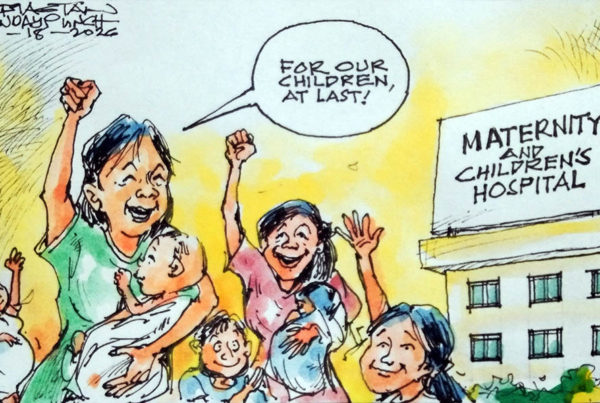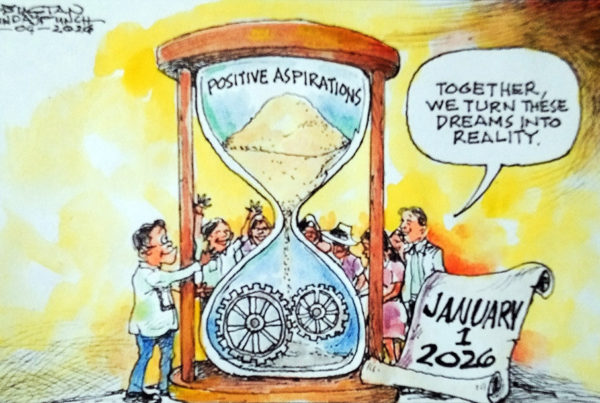Editorial
Ending the Flooding
Most of the past week has been sun-shiny once again, hot and humid actually some of the days with temperatures back at summer levels of above 30 degrees centigrade.
But the dry weather is a very welcome respite following almost two previous weeks of incessant rains and several typhoons which beat on Luzon, mostly the northern and central parts, one after the other.
Residents of towns and cities in the province, especially in the central and bustling Dagupan and its neighboring Calasiao and Sta. Barbara, are thankful for the break from the downpour because it also means relief from floodwater, not to mention the ensuing traffic mayhem in the streets and the health threats.
Households in areas which have gone underwater, even at just ankle level or as awful as waist-high, are surely busy cleaning out the filth that is the natural and rather exasperating aftermath of getting submerged.
Local governments should likewise be up on their toes clearing out the debris and all the rubbish in the drainage system.
The rainy days are not over. And with the increasingly unpredictable weather patterns, who knows when and how strong the next storm will be.
Better yet, officials should start re-assessing their urban or rural environmental management plans to address, for the long-term, this persistent problem. If there is no environmental management plan to begin with, then it is about time to start drawing up one. The plan should be wide-ranging to include sensible street and drainage structural plans, solid waste disposal to make sure that these don’t end up clogging waterways, and an institutionalized system for maintenance. The plan must also take into consideration projections for both human and economic growth.
The population is ever growing. Both the cities and rural areas are getting more and more dense, and this is a double-edged sword. It means there are more potential contributors to the roots of flooding as well as more potential victims for a major disaster, which is all the more why we need to take preventive measures rather than making mere reactionary responses.
We may not be able to control the weather, but we surely have within our powers to contain man-made catastrophes.










